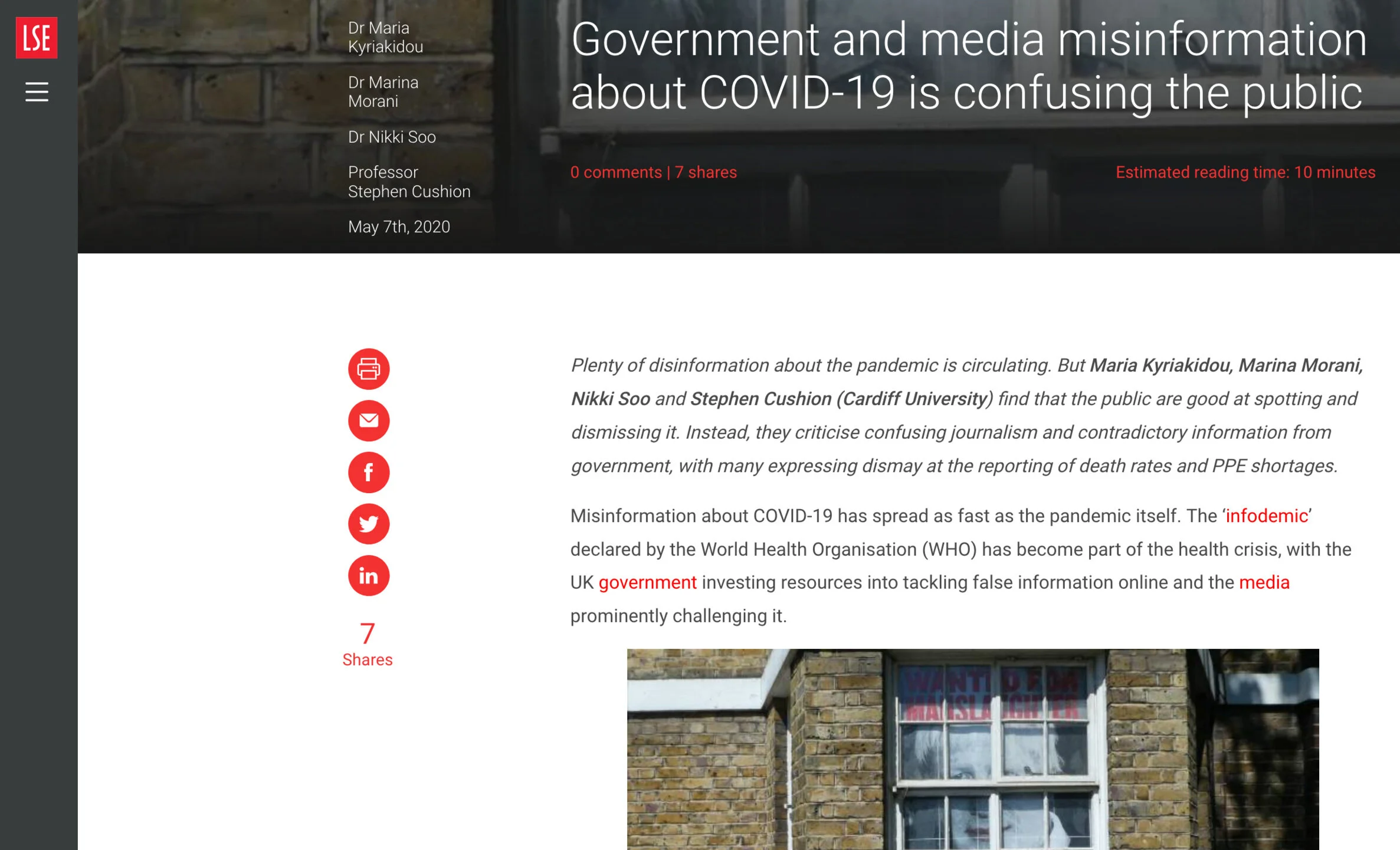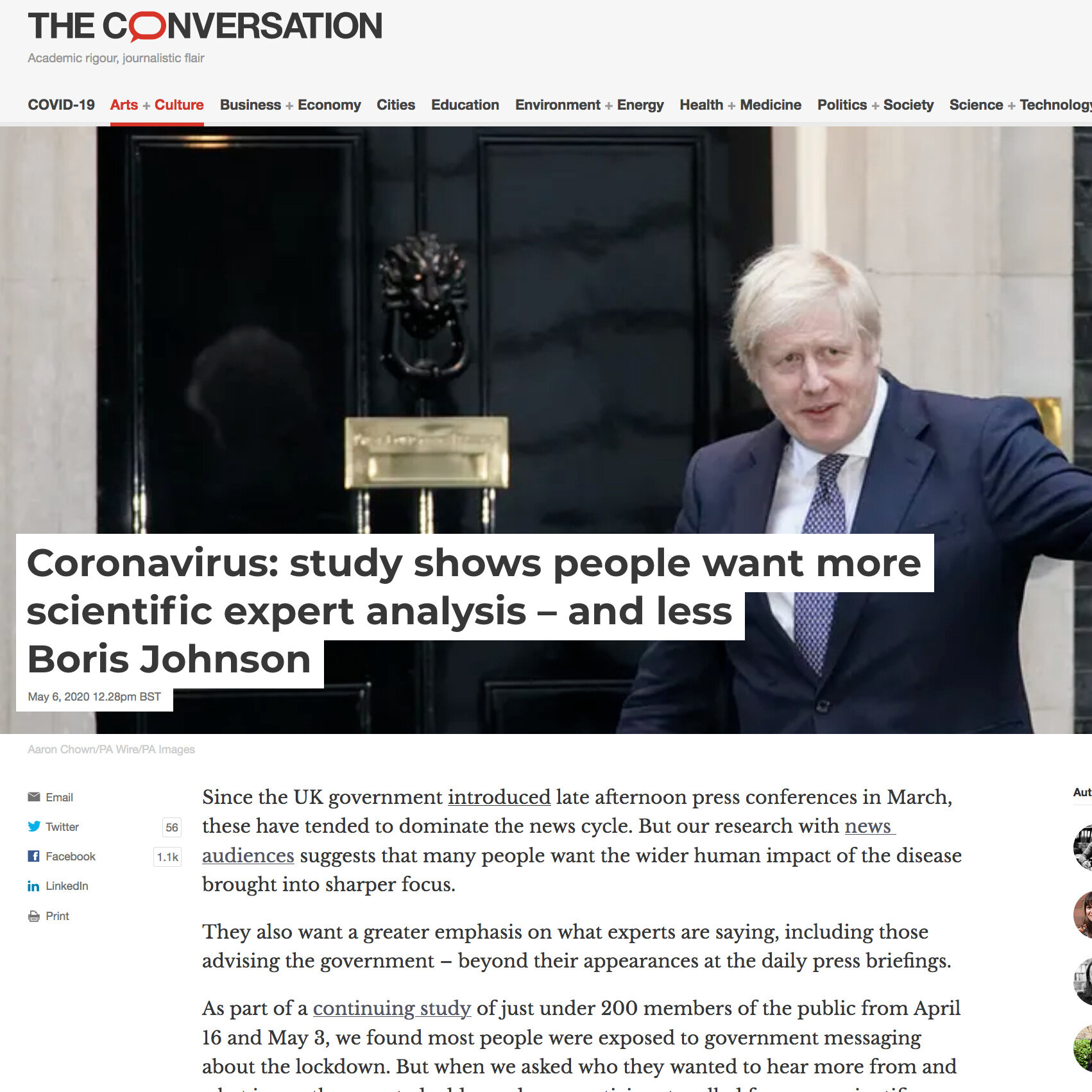Latest research
Our latest piece of research has recently been published in Journalism Studies; “Does the political context shape how “due impartiality” is interpreted? An analysis of BBC reporting of the 2019 UK and 2020 US election campaigns.” The research shows inconsistencies with how impartiality seems to be employed within the BBC, and in many instances a continued reliance on balance and “he-said-she-said” reporting, rather than true impartiality.
You can read the full paper here. To watch an animation highlighting some of the main findings of the paper, click on the video to the right. We worked with Learning on Screen to produce the video.

We spent six weeks asking people about media coverage of the Coronavirus: Here's what they told us
Between 16 April and 27 May 2020, we carried out an online news diary study with 200 people who were broadly representative of the UK population. The six-week study tracked their news consumption habits and attitudes towards different media at a critical point in the health crisis, as well as their knowledge and understanding of the pandemic and how it was handled in the UK. Here’s a flavour of the findings, which include some research related to the ongoing content analysis study.

Coronavirus: fake news less of a problem than confusing government messages – new study
With public confidence in the UK government plummeting, broadcasters have an increasingly important role to play in the pandemic. Over the six-week study, our respondents have consistently said they want accurate and impartial information, with journalists regularly fact-checking political statements and challenging any dubious claims. Our research suggests broadcasters may have helped people become fairly confident in spotting egregious examples of fake news. But many participants were confused by more routine political decisions, most strikingly the lockdown measures that can affect people in England differently to Scotland, Wales and Northern Ireland.

Government and media misinformation about COVID-19 is confusing the public
Plenty of disinformation about the pandemic is circulating. But our research found that the public are good at spotting and dismissing it. Instead, they criticise confusing journalism and contradictory information from government, with many expressing dismay at the reporting of death rates and PPE shortages.

Coronavirus: Study shows people want more scientific expert analysis – and less Boris Johnson
As part of our study with just under 200 members of the public from April 16 and May 3, we found most people were exposed to government messaging about the lockdown. But when we asked who they wanted to hear more from and what issues they wanted addressed, our participants called for more scientific experts, free from political interference.

Research suggests UK public can spot fake news about COVID-19, but don’t realise the UK’s death toll is far higher than in many other countries
How much does the British public know about the pandemic? Our sample of 200 people and found that while there is widespread rejection of the 5G conspiracy theory, many people do not realise the UK death rate is far higher than in other countries.